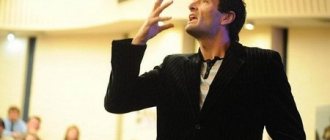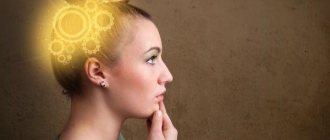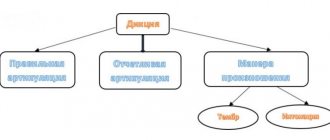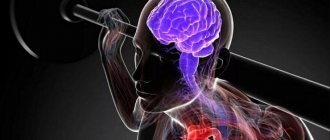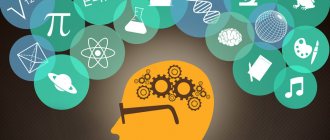Some people sincerely believe that in the era of information technology and gadgets, there is no need to remember a lot of information if it can be found in the phone’s address book or on the Internet. Others counter: imagine for a moment a surgeon who says in the operating room: “Ok, Google, how to perform an operation to remove the appendix?” Of course, such examples seem exaggerated, but queries in search engines like “how to train memory and attention in adults” are not that uncommon. A good memory still remains a valuable human quality in professional activities and everyday life.
For a long time, memory was thought to be like a large filing cabinet, and the process of memories weakening over time was compared to the fading of ink on a filing cabinet. However, now this approach has lost its relevance, because there is no single part of the brain responsible for remembering and reproducing memories.
“If memory is found anywhere, it is everywhere,” says world-famous Dutch neuroscientist Dick Swaab.
The mechanisms of memory are not fully understood; the only thing scientists agree on is that this brain function can be developed, like all others. It is no secret that ancient Greek thinkers were engaged in this. Some exercises for developing memory have reached our times thousands of years later, others have appeared quite recently. We bring to your attention popular ways to train thought processes that will increase the speed and quality of memorizing the necessary information.
Peculiarities
Many people believe that there is no need for an adult to develop memory, because the foundations were laid in childhood and if the child has not been worked on, nothing can be corrected. This may partially relate to speech or thinking, but not the ability to remember and reproduce information. It can and even needs to be trained throughout life.
In young age
From 20 to 30 years of age, memory deteriorates most often due to traumatic brain injuries, past infections, unhealthy lifestyle, and traumatic factors. Alcohol abuse, chronic lack of sleep, problems in relationships and at work - all this negatively affects the functioning of the brain. To correct the situation, first of all you need to put your life in order. And then select the appropriate simulators and sets of exercises. As a rule, at this age everything is still not so advanced, and you can safely practice at home for 5-10 minutes a day.
In middle age
From 30 to 40 years old, adults begin to develop memory, most often for the purpose of self-improvement, in order to remember more and better layers of information necessary for successful advancement at work. This perfectly helps to cope with all assigned responsibilities and at the same time increases IQ, since such techniques also work to improve thought processes. For this age, we can recommend modern mnemonics like “Giordano” that are quite difficult to master.
Serious problems begin between 40 and 50 years of age. Hormonal changes occur in the body, aging processes begin, metabolism slows down, which does not have the best effect on the functioning of the brain. It's time to start developing your abilities, or every year the deterioration will only progress: the failures will become deeper and more protracted. You need to devote at least 15 minutes to this every day.
In old age
If adults were engaged in memory development in a timely manner and managed to achieve certain success in this field by the age of 50, they will feel how useful it was. Firstly, much fewer problems are found than in those who have never heard of mnemonics and neurobics. Secondly, it is an excellent prevention of senile sclerosis and marasmus, Alzheimer's and Parkinson's diseases.
If you do the exercises regularly (=daily), even after 60 you can go to the store without a grocery list and calmly dial your son or daughter’s phone number from memory. The more time you devote to this in old age, the more effective the methods used will work. But it is better to consult a doctor about their choice.
Yoga for attention
The study, which was just launched in 2021, has already shown that yoga practices that focus on both movement and breathing can increase students' concentration time. Interestingly, people who practiced both practices also reduced their levels of perceived stress, but those who focused solely on breathing in static poses also improved their attention scores.
Techniques
It is important for adults to choose the right method for memory development. If there are specific programs for children (most often gaming), then after school a person is left alone with his problems. Some people prefer to ignore them: they forgot about an appointment - who doesn’t! Some people are hesitant to see a psychotherapist or neurobiologist: it’s embarrassing to admit that you can’t remember your own phone number. Others try to follow in the footsteps of childhood memories and play online simulators for preschoolers and teenagers, since they themselves cannot find anything more worthwhile.
All three situations turn out to be failures. As a result, memory will invariably deteriorate and every year more and more. Therefore, all adults need to know what methods for its development have been created for people who are already over... And in fact there are not so few of them:
- mnemonics;
- neurobics;
- finger gymnastics;
- speech exercises;
- speed reading;
- online simulators;
- test and game tasks;
- ordinary memory development exercises;
- mobile applications.
In addition to these effective techniques, you can use the miracle remedies of traditional medicine and innovative modern technologies. Dietary supplements, vitamin complexes, tablets that improve brain function and strengthen cognitive mental processes, coupled with the above methods, will allow you to remember and reproduce gigabytes of useful information. And, of course, do not forget that all this will have no effect if you do not normalize your lifestyle and monitor your health.
Find a personalized way to memorize and solve problems
We are all different, and each person has his own unique style of thinking and remembering information. Someone will be able to develop memory speed in a few weeks, while another person will need several months, however, this does not mean that you have to stop.
Everyone's speed of memorization is also different. One person needs only a single repetition of the material, while another needs to watch or read it several times.
Analyze how you remember information. The memorization method will help you find the most effective method of assimilation of information. People are divided into three types:
- Visual people - they often operate with images.
- Auditory - They remember better what they hear.
- Kinesthetic learners - sensations are important to them.
Having determined your leading type, you can choose the most convenient method of memorization. Remember how it is more convenient for you to perceive information - reading or listening. Do emotions, as well as the ability to touch a thing with your hands, affect the speed of memorization?
Use this system. However, we should not forget about others, they should also be developed, and then thinking becomes more productive and memory is stronger.
Intellectual activities
Since the hippocampus, a part of the brain, is responsible for memory, most techniques are designed for its development. In an adult, it is already fully formed, but, nevertheless, in order to preserve and strengthen the neural connections between it and the rest of the nervous system, training is necessary. You can be sure that attention, speech, and intelligence will also improve along the way, because exercises and techniques will have a positive effect on the entire cerebral cortex.
Games
On the one hand, gaming activities are addressed primarily to children. However, in some cases it can develop memory in an adult if:
- he is new to this matter and has never worked on memory development before - it’s better to start with something simple;
- he experienced a severe injury (traumatic brain, mental), which led to problems with memory - its development and restoration must be dealt with gradually;
- The games are quite complex and not every adult can cope with them.
We offer an overview of several games that can be safely used by adults to develop cognitive processes.
Tag
A game familiar to many since childhood, which should not be ignored as an adult. To put each number in its place, having only one empty square at your disposal, you have to strain both your thinking (reason logically) and memory (memorize various combinations) in order to accurately calculate the moves.
Chess, backgammon, checkers
Few people know that chess is one of the most effective ways to prevent and treat Alzheimer's disease, the main symptom of which is memory impairment. The principle of its development is the same as in the previous game: you need to remember as many combinations of moves as possible in order not to make mistakes and win against your opponent.
Cards
Poker, preference and even the simplest solitaire games, which everyone has played on the computer at least once, are considered not the most positive (but typical for adults) and even gambling. However, experienced gamblers always have an excellent memory, a sharp mind and quick ingenuity, because here you also need to remember combinations and moves (your own and your opponent’s) in order to win.
Crosswords
Adults love to solve crossword puzzles. If you easily “destroy” a book of scanwords in a day and think that this is quite enough for the development of memory and thinking, you are mistaken. All the words are probably already imprinted in your head, and no training is taking place. You are marking time in one place. Try to find and solve other types of crosswords: anagram, associative, bilingual (in two languages), keyword (with numbers), scattered (reminiscent of puzzles), cyclocross (there are not only verticals and diagonals, but also arcs and circles), criss -cross (vice versa) and others.
Rebuses
It turns out that they are not only for children, but also for adults. Look for puzzles in which entire phrases are encrypted - proverbs, sayings and simply interesting facts. Some will require you to rack your brains for hours. The development of memory occurs due to the fact that one must constantly remember the order of letters in the alphabet, numbers, notes and other patterns. For example, try to read what is encrypted in this picture:
Answer: If you are suddenly bitten by a crocodile, then you just need to press hard on its eyes, and it will let you go (scientific fact from the life of animals).
Online games for the development of cognitive processes:
- Way of the Ninja;
- Numismatist;
- Astrologer;
- Soundvar;
- Vertical shift;
- Pyramidostroy, etc.
Download for your health and develop!
Memory exercises
If you are more serious and don’t want to play at all, select special exercises for developing memory and attention in adults and do them for 10-15 minutes a day. This will be enough to solve the most serious problems: from minor failures to amnesia. We present one of the complexes to your attention.
"Detective"
Someone at home lays out 15-20 different items in front of you. You study them closely for 30 seconds and turn away. An assistant removes 1 or 2 items behind your back. You need to guess what disappeared.
"Mnemonic storage"
Try to remember 15 writers of the 19th century, tropical fruits, mathematical formulas, famous scientists, works of L.N. Tolstoy, phone numbers of your family and friends, etc. Didn’t make it to 15? Look for the missing fragments, memorize and play again until they all fill your “Mnemonic Storage”.
"Vocabulary dictation"
The assistant writes words on a piece of paper that are in no way related to each other (run, stand, vacation, beautiful, alarm clock, etc.) and numbers them (from 15 to 20). You study them for 1 minute, then the list is removed from your sight and you reproduce it in writing in the same sequence.
"Let's get acquainted!"
Do you put off studying because of a busy work schedule and eternal time pressure? Then this exercise is just for you! It can be done on the way home or during your lunch break. Choose an object to observe - it should be a person you don’t know, who is not in motion (sitting or standing). Study it for 1 minute. Then turn away and try to remember in every detail what he looks like. Details such as eye color, moles, wristwatches, jewelry, buttons, pockets, etc. will matter.
"Cellular toking"
An easy exercise - but only at first glance. In the presence of someone (this is a prerequisite), begin to quickly and without pauses name out loud everything you see around. Record how long you were able to go without stopping. Rarely does anyone reach 4 minutes. Embarrassment (shyness) in front of the viewer, fatigue of the articulatory apparatus and brain cells are triggered. The more often you give them such loads, the longer you can hold out.
"Writer"
It is somewhat reminiscent of the “Vocabulary Dictation” exercise. The assistant gives you 10-12 words that are in no way related to each other, you remember them and compose a story based on them. It could be a fairy tale, a poem or any literary work. The main thing is that absolutely all words are mentioned in it.
Aivazovsky exercise
Included in almost all sets of mnemonics exercises for any age, including adults. Improves photographic memory. You need to choose to observe a complex picture with a lot of details (for example, S. Rosen’s “Still Life with Fruit and Sunset Landscape” or P. Bruegel’s “Mad Greta”). Study it for 1.5 minutes. Then close your eyes or turn away and try to reproduce its smallest details.
Painting by P. Bruegel “Mad Greta”
Neurobics
As you already understand, in order to develop memory and thinking, you need to constantly train your brain. This strengthens neural connections and improves the functioning of the hippocampus. Neurobics—gymnastics (exercises) for the mind—will help you do this quickly and efficiently. At first glance, it may seem that it has absolutely nothing to do with the processes of memorizing and reproducing information, but after a couple of weeks of training you will feel how its volume has increased.
- Try to visit new places.
- Use different essential oils, scented soaps, perfumes, deodorants, air fresheners.
- Do normal tasks with your eyes closed (for example, vacuuming or taking a shower).
- Change hands: sometimes do with your left hand what you usually do with your right and vice versa.
- Master new types of activities, get several educations.
- Look for multiple answers to the same question.
- Once a day, read an unfamiliar text on a topic far from your area of interest, and try to understand it.
- Turn off the TV sound. Guess what we are talking about.
- Are you used to doing everything quickly? Slow down the pace by half. Or vice versa.
The main task of neurobics is to create a new environment for the senses. This will force the brain to turn on previously unused resources, including waking up the hippocampus, which is responsible for memory development.
Finger gymnastics
Finger exercises help improve memory in adults by developing the hemispheres of the brain and creating new neural connections in the brain. This speeds up thought processes and increases the amount of information remembered. Be prepared for the fact that not everything will work out the first time. Train and the results will be obvious.
- Show a thumbs up with one hand, like/quickly change hands with the other.
- Place the fist of the other on top of the outstretched palm of one hand / quickly change hands.
- Sit at the table, methodically knock on it with the fist of one hand, and stroke its surface with a circular motion with the outstretched palm of the other hand / quickly change hands.
In yoga there are a large number of exercises specifically for finger gymnastics, and each will work on memory development. The main thing is to practice every day and constantly complicate the tasks.
Speech exercise
Speech is most directly related to memory and thinking. If one thing gets worse, it leads to problems with other processes. Therefore, all these components need to be developed. Tongue twisters handle this best. Moreover, children's ones are not suitable. Take something more difficult. First, you need to remember word for word. Secondly, pronounce quickly - this is how not only diction and articulation apparatus develop, but also memory. Which ones can you take:
- The longboat arrived at the port of Madras. The sailor brought a mattress on board. In the port of Madras, a sailor's mattress was torn apart in a fight by albatrosses.
- You even stained your neck, even your ears with black mascara. Get in the shower quickly. Rinse the mascara off your ears in the shower. Rinse off the mascara from your neck in the shower. After your shower, dry yourself off. Dry your neck, dry your ears, and don’t dirty your ears anymore.
- The Staffordshire Terrier is zealous, and the black-haired Giant Schnauzer is playful.
- The snake was bitten by the snake. I can't get along with the snake. I’ve already become narrower from horror - the snake will eat it for dinner.
- In the hut, a yellow dervish from Algeria rustles his silks and, juggling with knives, eats a piece of fig.
Mnemonics
One of the most effective techniques for memory development. Based primarily on associations, but also uses other techniques. If adults were not lucky enough to learn short poems during schooling in childhood to remember some patterns (sequence of planets in the solar system, colors of the rainbow / exceptions to the rules / mathematical formulas and long decimal fractions like Pi), now is the time to start. This will significantly improve memory and increase its capacity.
Training systems using this method, for all ages, can be found in our separate article.
Tests
On the Internet you can find many online simulators that offer tests to determine the level and volume of memory. The more often you visit such resources and the more varied the tasks you choose, the faster the development of cognitive processes will occur. Their implementation requires increased concentration, ingenuity, and the ability to remember a lot of information.
Recommended online trainers: Vikium, Sepika, Bitreynika, Superbrain, BrainApps, Zanimatika.
Example types of tasks:
- Among a dozen similar objects, find one that is different.
- Fill in the blanks in an example or equation.
- Find a certain number of differences in the illustrations.
- Remember numbers or words that appear on the screen for a moment.
- Orally count a difficult example.
One test a day for adults - and there will be no problems with memorization.
Tasks
There are tasks for logical thinking and intelligence that require both concentration and the ability to remember details and a large amount of information. Such puzzles are especially good for developing memory in adults.
Example:
In the football championship, where each team fought each other once, 4 teams participated: “Alpha”, “Beta”, “Omega” and “Gamma”. For a loss, the team was awarded 0 points, for a win - 2 and for a draw - 1. The final match ended: Alpha lost to Omega, but still became winners, and Omega did not improve their team's score. How did “Omega” and “Gamma” play with each other?
Answer:
There were 6 games in total, which means 12 points. Alpha has no more than 4 points because the final game is won. But a team cannot have 3 points, because then other teams have no more than 2 points (“Alpha” is in 1st place), so all groups have no more than 9 points. It turns out that “Alpha” has 4 points and they defeated “Beta” and “Gamma”. Until the final game, Omega could not have 2 or 1 point. Otherwise, if they had defeated Alpha, they would have moved up a place. Therefore, Omega lost the other 2 games and therefore scored only 2 points. Consequently, “Beta” and “Gamma” defeated “Omega” and played a draw among themselves.
Facilities
If intellectual puzzles and logical problems do not help, then a specialist should deal with it.
Medications
If there are serious problems with memory and the doctor has diagnosed this, he may suggest solving them with pills. There are a number of drugs that improve cerebral circulation and promote the development of thinking and memory. The most famous: Noopept, Nootropil, Glycine, Phenibut, Piracetam, Tenoten and other nootropics, adaptogens, antioxidants, antidepressants.
Sometimes they can prescribe individual vitamins that help improve and develop memory: C, D, E, almost the entire group B. They are also collected in multivitamin complexes designed specifically for the brain.
Adults can take a course of dietary supplements, but no one can guarantee their effectiveness. Although good drugs for the development of cognitive processes are produced by Doppelherz (Germany), Evalar (Russia), Solgar (USA).
Folk remedies
The same goes for folk remedies. They don't develop memory. But by activating cerebral circulation, normalizing blood pressure and improving overall well-being, they help adults begin to remember and reproduce much larger volumes of information faster and better (without errors ) . Infusions and decoctions of meadow clover flowers, motherwort leaves, wormwood, elecampane roots, red rowan bark, and rose hips have such properties.
However, you should be extremely careful with folk remedies, since in the presence of chronic diseases they can cause their exacerbation or side effects.
Recommendations
Experts also provide useful advice to adults who are planning memory development.
- Try to strain your brain as soon as possible. Learn a new foreign language, take a driving course, etc.
- Watch intellectual films, visit unusual art exhibitions.
- Meet people more often, communicate more, make connections - do networking.
- Read more, give preference to the classics.
- Learn to manage your emotions, don’t let empty worries and nervousness get the better of you.
- Use the well-known ways to improve cerebral circulation: enjoy fresh air as much as possible, play sports, and learn breathing exercises.
If you want all the methods described above to work, try to follow these recommendations.
Books
- Bukin D. Development of memory according to the methods of special services.
- Buzan T. Improve your memory.
- Dumchev A. Remember everything. A practical guide to memory development.
- Kawashima R. Train your brain. Japanese system for the development of intelligence and memory.
- Katz L. Don't let your brains dry out. 83 neurobics exercises.
- Loberg K., Beister M. Fast mind. How to forget what is unnecessary and remember what is necessary.
- Muller S. Remember everything: secrets of supermemory. Book-simulator.
- Pugach Yu. K. Development of memory. System of techniques + 126 exercises for memory development.
- Sipe R. Brain development. How to read faster, remember better, and achieve bigger goals.
- Foer J. Einstein walks on the moon. The science and art of memory.
Memory development needs to be addressed not only by children, but also by adults. All of the above methods will allow you to stop the aging processes that lead to its deterioration. They mitigate or completely eliminate the harmful effects of an unhealthy lifestyle, traumatic brain injuries, severe infectious diseases and other harmful factors that cause brain cells to die and neural connections to collapse. Just 10-15 minutes of daily training and all this can be minimized so that by the age of 40 you do not suffer from senile sclerosis.
You may also be interested in:
Brain training - 5 effective methods
Like any other organ of the human body, the brain requires not only regular rest, but also constant training, which helps to increase the functionality of nerve cells and improve the performance of various parts of the brain. There are many different ways to train the brain, here are the simplest and most accessible for everyone:
- Foreign languages - nothing helps activate the brain and improve memory than learning new languages. If you have long wanted to learn a new language, then you can simultaneously become a native speaker and train your memory. The best training would be to set a certain norm of memorized words per day, and then translate them into another language. By learning two or three languages at the same time, you significantly activate your brain.
- Poems – learning poems and songs will improve your memory, and at the same time improve your relationships with people. Learn one poem every week and your memory will work much better.
- Digital combinations - try to memorize phone numbers, this will not only save you from the need to constantly use a directory and address book, but will also help train your memory.
- Associative thinking - if you can remember something specific, for example, the names of new acquaintances or the names of products, then try to draw parallels with significant events or images from your life. For example, associate names with movie characters, and associate passwords and numbers with historical dates or events in your life.
- Motor skills – motor skills directly affect brain performance. Train your weak hand, for example, if you are right-handed, learn to write with your left hand - this will significantly help increase brain activity, and therefore the quality of memory.
There are other ways to train brain activity, these are just 5 of the most effective and accessible for everyone.



